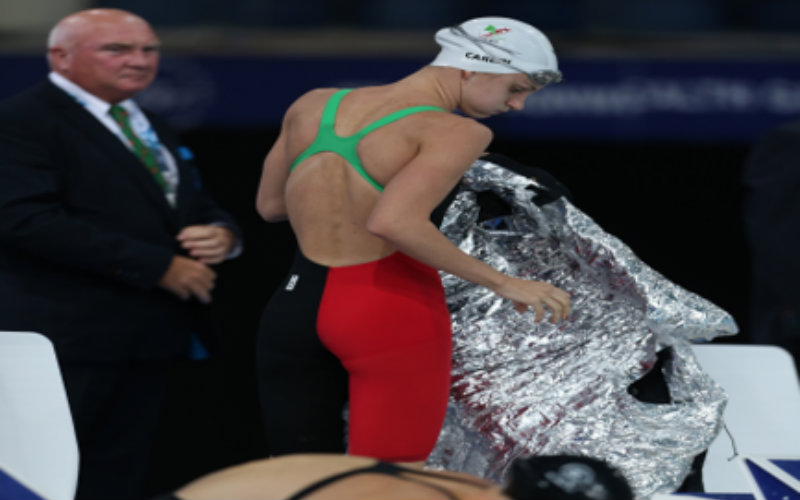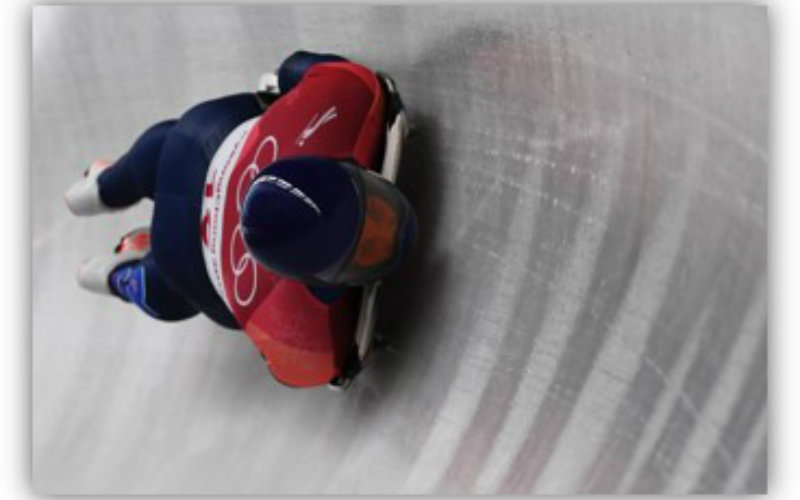Sport, Health & Wellbeing
Embracing the evolution of stress
An athlete performing at high tension, optimal levels is vastly different from ordinary folk dealing with day-to-day stress – or so one would think.
The two are more connected than you might assume. Studies into how high performance athletes cope with the mundane routine of training coupled with expectations of optimal performance have helped identify ways and mechanisms that ordinary, relatively fit individuals can master to deal with stress.
Research Professor Christian Cook, from the University of Canberra’s Research Institute for Sport and Exercise (UCRISE), has been studying the impact of stress on high performing individuals – athletes, teachers and medical practitioners – and his findings have informed the need to develop coping mechanisms to deal with stress.
"The nature of stress has evolved alongside our changing world," said Christian.
"While we are designed to cope with stress, and we need it to survive, we are not necessarily designed to cope with the nature of social or environmental stressors that we experience today."
According to the World Health Organisation (WHO), stress-related diseases may be the number two cause of illness in the world by 2020. Christian believes that this will collide with another major health trend: the prevalence of dementia in our population.
"By 2056, it is estimated that 1.1 million Australians will experience dementia," he said.
Prolonged high levels of stress result in excessive levels of the stress hormone, cortisol, which potentially predisposes people to dementia. Our stress needs addressing and managing, or as Professor Cook believes, stress responses need to be challenged and trained.
The growing effects of stress in our population on anxiety, depression and metabolic syndromes means that an understanding of the nature of stress, and developing resilience to it, is crucial.
A major advance in hormone research over the last decade shows that they can have rapid behavioural effects. Within minutes, they can alter our perspectives on competition, social status or a stressful situation, influencing our motivation towards action and contributing to what we learn in any situation. Under the right situations this can assist in adaptive responses to stress, that can then be taken into other novel situations.
According to Christian, high performance athletes and other high performing individuals may cope better with stress because their response systems have been trained to do so. This can be attributed to the repetitive and progressive training, mentally and physically, for that ‘big’ event.

"The evolution of exercise has grown into a lifelong commitment to healthy movement as a means of maintaining our physical health in a changed world; and by the same token we need to apply the same methodology to building and maintaining resilience to stress," said Christian.
Activities such as exercise, doing puzzles, cooking and other creative pursuits build up resilience against the physical, social and emotional stressors we experience daily.
Professor Cook reiterates that the mechanisms for coping with stress are individual in nature and each person would have to identify their unique coping methods to lessen the impact of stress on their lives.
"It may be necessary to do 30 minutes of walking every day, for example, attend a cooking class once a week, and take up a hobby like painting," he said.
It is the fine balance between physical and mental relaxation activities that will build the resilience we need to cope with stress. It needs to be ongoing and regular and have elements of challenge specific to us as individuals.
The sense of mastery, in the fact that we ‘did it well’ and can feel the difference, is essential, as is introducing coping mechanisms into our lifestyles.
Christian relates a story of an elite multi-gold winning athlete that he worked with.
"We realised that the high performance environment was not suitable for the athlete’s individual needs and did not allow for stress adaption. So, the simple act of altering a few elements in the environment, leading to an enhanced sense of mastery, turned this around for the athlete."

"This further highlights the need to build resilience in our children, as stress increases and differs through the various stages of life. Just as exercise has become an essential lifestyle choice, so too should we be developing coping mechanisms to adapt to the stressors of today in preparation for the years to come," continued Christian.
"Opportunities to continue education are now an abundant feature across our lifespans, making it essential to promote a rich expression of learning, but also to add broad resilience to the life of learners."
Ultimately, we need to embrace stress. It is a part of our lives and always will be; it simply cannot be removed. What is important, however, is that we need to ‘train’ for it and in so doing we stand a better chance of living long, fruitful and productive lives.
Further information on Christian Cook’s work can be found in the book Game Changers by Joao Medeiros.
Words by Andy Visser and images courtesy of Christian Cook